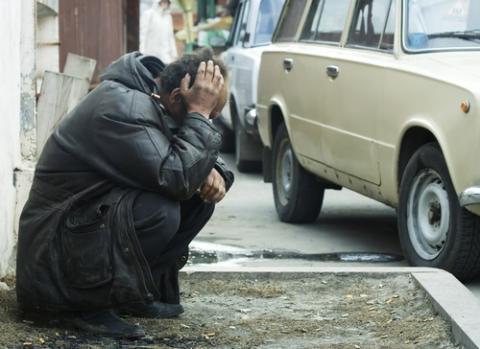Irish well-being degraded by recession

The rise in inequality and poverty during the economic boom was damaging enough. But now, rising unemployment, income cuts and spiralling debts are contributing to an even graver depletion in the state of Irish ‘well-being’, according to Helen Johnston, Senior Policy Analyst with the National Economic and Social Council (NESC). Her findings are part of the NESC’s latest report, ‘Well-being Matters: A Social Report for Ireland’, and were presented yesterday at a conference organised by Social Justice Ireland entitled 'Beyond GDP: What is prosperity and how should it be measured?'.
The ‘Well-being Matters’ report lists numerous dangers which the recession poses to people’s welfare including job loss and fear of job loss, deterioration of working conditions, spiralling debt and limited employment opportunities. The report also emphasises how such issues can severely impact other areas of well-being including personal relationships and community dynamics which can lead to increased crime and racism.
The report broadens the concept of well-being to include people’s physical, social and mental state. Well-being requires that person’s basic needs are met, that they have a sense of purpose, that they feel capable of achieving goals and participating in society. Individual well-being can be further improved by conditions that include such features as financial and personal security, meaningful and rewarding work and values of democracy and social justice.
While ‘well-being’ may be difficult to quantify, deterioration in standards of well-being can be readily observed. In the last couple of weeks the UK’s Royal College of Psychiatrists have reported evidence of a link between debt and mental health problems, including anxiety and depression, a theory which is further validated by a 43 per cent rise in suicides in this state in the first three months of this year. This coupled with more cuts in service provisions looming, means the issue of well-being is likely to grow as the state attempts to claw itself out of recession.
The importance of measuring well-being, and its inclusion in yesterday’s conference, arises largely out of a growing dissatisfaction with economic indicators as a primary measure of progress. A principle criticism of Gross Domestic Product (GDP) is that it is a one-dimensional indicator which ignores many dimensions essential for well-being such as children’s education and relationships. GDP also ignores the many and varied complexities in relation to individual well-being and collective well-being.
The NESC offers a number of modifications to state goals on progress, including a move from growth of Gross National Product (GNP) to more sustainable growth, from absolute job creation to participation rates and from developer-led developments to planned and sustainable communities.
NESC also puts forward a number of immediate policy priorities, foremost being the need for a duel-faceted approach to addressing unemployment which focuses on both job retention and job creation. Other immediate priorities are the provision of financial support, including pension reform, the transformation of institutions and increased institutional and individual accountability.
However, the NESC does not contend that improving well–being during a recession is solely in the hands of policy makers. The report emphasises resilience as a human component which can be utilised, supported and advanced through the acknowledgement and development of capabilities to improve individual well-being. With unemployment rising and a harsh budget approaching the coming months will definitely provide a test of this resilience.
Full NESC report: Well-being Matters: A Social Report for Ireland
